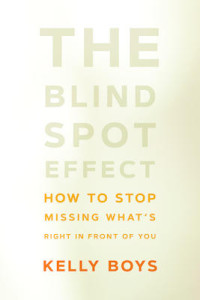When I was in my mid 20s I fell madly, deeply in love on a backpacking trip through Europe. We started a long-distance relationship between Vancouver, Canada, and Hamburg, Germany, and I didn’t question our strong and beautiful connection.
Then, after a few months, I learned that he had slept with his best friend.

He said it meant nothing, that our connection was everything to him and he was so sorry. While I opted to stay with him for another four years, we never quite recovered from that betrayal—he was lost in shame, and I was lost in anxiety and distrust. Then, as the relationship was deteriorating, I found myself at a party without him kissing someone I’d just met. Our relationship was over.
To be on either side of this story is heartbreaking and painful. I would never have envisioned myself or my ex as someone who would “do such a thing.” This experience raises some questions. Why do we cheat in relationships? Can we do anything to prevent cheating? Are we destined to repeat what couples have been doing for millennia?
It’s hard to truly see yourself, to look underneath the hood at what drives you unconsciously. But our acts of betrayal—from a tipsy holiday-party kiss with a colleague to a full-blown, years-long affair—often come out of a disconnection from ourselves and from our deeper motivations and underlying beliefs. We feel out of control—I don’t know what came over me!—when we blindside ourselves and those around us with our actions.
In my book, The Blind Spot Effect, I lay out the myriad ways we miss what is right in front of us or see what’s not really there. Blind spots can result from our physiology (like when we have optical illusions or miss something in our attentional field), our emotions (like when unconscious emotions motivate behaviors that harm us), or our thoughts (like when we judge ourselves harshly and can’t see our finer qualities), and more.
While we all have these blind spots, we can learn how to recognize them and take precautions so that we aren’t blindsided—in love or otherwise.
The biology of cheating
It’s so easy to go blind in “love.” Our impulses and drives can be strong, and create huge blind spots if we’re not thoughtful and aware.
Psychologist Helen Fisher separates the whole falling-in-love process into three parts: lust, attraction, and attachment. This means we can be in a long-term relationship with someone we love (attachment) while simultaneously being attracted sexually (lust) to any number of people, and even experience falling in love (attraction) at the same time.
 This essay is adapted from The Blind Spot Effect: How to Stop Missing What's Right in Front of You (Sounds True, 2018, 208 pages).
This essay is adapted from The Blind Spot Effect: How to Stop Missing What's Right in Front of You (Sounds True, 2018, 208 pages).
When we fall in love, we experience sweaty palms, flushed cheeks, and feelings of passion and anxiety—accompanied by the reward-seeking neurotransmitter dopamine and a rush of cortisol, the stress hormone, mobilizing to help us deal with our plight. And sometimes, plight it is! Interestingly, when cortisol levels rise, serotonin, the neurotransmitter and natural mood stabilizer found primarily in our gut, gets depleted. This results in preoccupying thoughts, hopes, and fears that are related to infatuation—making our brains look a little obsessive-compulsive.
On top of that, we experience increases in adrenaline and an important chemical, norepinephrine, that feels good, but also makes us feel infatuated and obsessed. Combined with the motivated energy of adrenaline in our system, it’s no wonder so many of us have good “love is blind” stories.
Knowing some of the science behind what our brain is doing and the behavioral research across cultures and animal species doesn’t take the mystery and specialness out of connecting with, marrying, partnering up with, or dating someone. And it doesn’t mean we become rudderless and throw our ethics and morals out the window—quite the opposite.
Understanding these processes helps prevent us from falling into blind, patterned reactivity when we feel some of these things. Normalizing what is happening in our biology is a powerful tool to harness our own awareness and inspire behaving with integrity despite our bodies going wild or, more likely, the fear of our bodies going wild, especially when we’re in long-term relationships we want to preserve.
How understanding cheating helps prevent it
While these chemical reactions contribute to cheating, there are many psychological reasons people cheat, too.
Many of us cheat or lie or deceive because we are scared to lose our partner if we say the truth—that we aren’t feeling connected anymore. Or sometimes we are scared to lose our idealized image of ourselves as the “perfect” partner who is loyal and committed. Or we may be driven by our unconscious drives to gain acceptance and love—something we may have never felt in our entire lives. In those moments, empathy for our partner goes out the window and we are blindly acting out of our own unconscious drives with unskillful and destructive behavior.
The good news is that in going all the way into what drives us and seeing it, we can find our path to something far deeper and truer in the quality of our connections. When we understand the nature of desire, and our own insecurities, needs, and vulnerabilities, we come into a right relationship with ourselves. We tell ourselves the truth and begin to listen in a way we haven’t before to our own inner experience. We then get the chance to share our imperfect messy wholeness with another human being: It’s the gift of a lifetime. And we have the chance to love their imperfect messy wholeness, too, a gift we now view as priceless.
If you find yourself falling in love (or just lust) with someone else while you are in a loving relationship, here is what I suggest.
Remember that “this too shall pass.” Every feeling, no matter how strong, will change. Even though it may take over temporarily, try seeing the impermanence of it from a wide-lens view. Let that help guide the actions you take in response to what you feel.
A mindfulness practice can help make this concrete, teaching you to be both aware and nonjudgmental toward your experience. You can see feelings come and go without getting caught up in them. In fact, research shows that mindfulness training can reduce emotional reactivity, helping us to put our feelings in perspective.
Talk to your partner. Letting your partner know you have a crush on someone opens the door to asking if they can help you as a supportive team to approach the situation with some humor and creativity. Sometimes just sharing it can help lessen the feeling, especially if you have established agreements around sharing together when situations like this occur.
While it may be hard to even imagine doing this for fear of hurting or offending your partner, speaking the truth within an agreed-upon container of kindness and curiosity can build trust and a self-reinforcing loop of intimacy and connection. Honest communication, rather than deception, is likely to lead to greater emotional closeness—as long as you do so with sensitivity and the intention of growing intimacy rather than hurting your partner.
Do not act on it. If you feel tempted to have an affair, don’t. Have that conversation with your partner first. You owe it to yourself and them to have integrity and clear sight. Even if it spells the end of your relationship, you’ll have done it with authenticity and integrity. And you never know; it may rekindle a flame in your relationship that has gone out, as intimate shared conversations sometimes do.
Here’s what happened to me: After 13 years with nothing but distance and no contact between us, I met up with my ex-boyfriend in December of last year in Hamburg, Germany. We were able to look each other in the eyes and tell the truth: how he could now see what had driven him to those acts of betrayal and insensitivity, and how I could see what had driven me to react and lose connection with myself, hurting him in return. Over a glass of mint tea, we healed what had seemed like a gulf of suffering with clarity, love, remorse, and forgiveness.
It’s important for us all to recognize our blind spots and be honest about their hold on us if we want to create happier, healthier interactions with our loved ones. Only by returning home to ourselves can we gain the deeper connection and intimacy we long for in relationships.








Comments